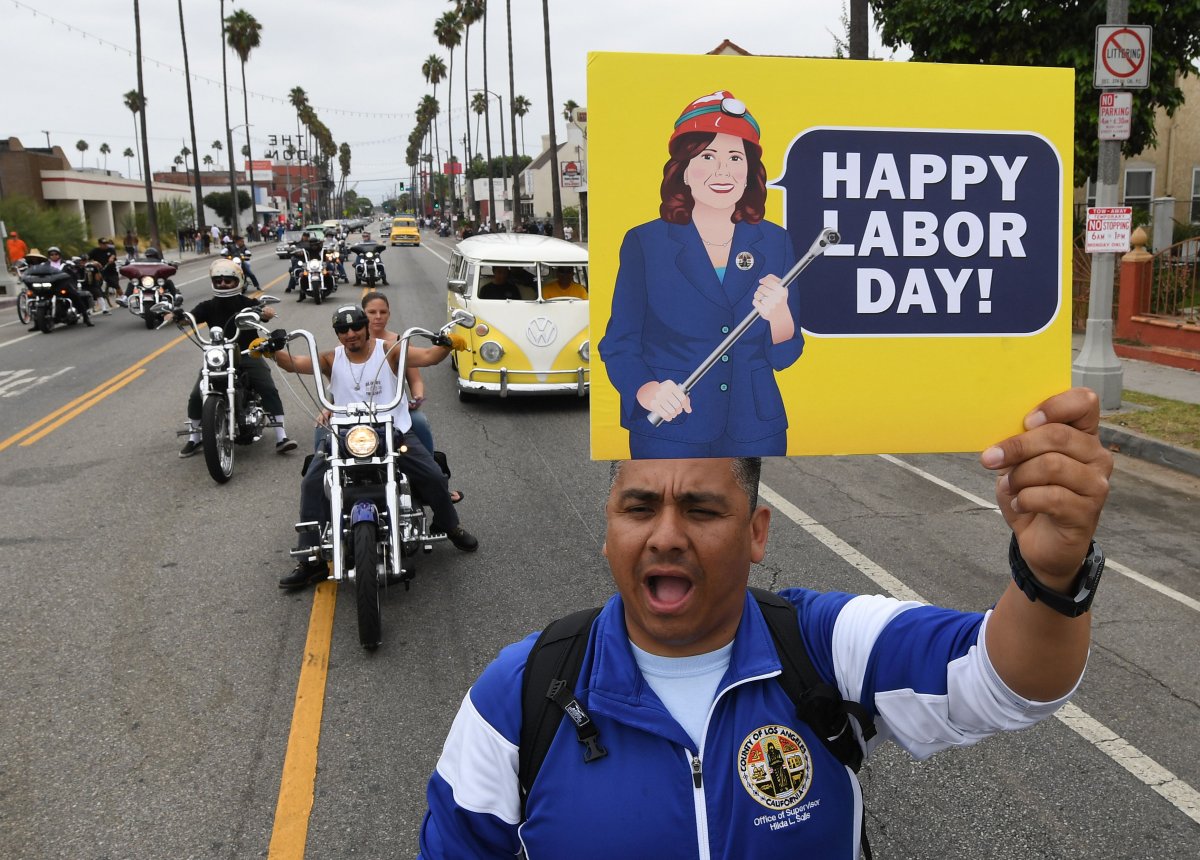Labor Day has come to be known as the end of the summer season, but its origins have nothing to do with barbecues and everything to do with oppressive working conditions.
Activists and individual states recognized Labor Day well before President Grover Cleveland signed a law making it a federal holiday in 1894. Always observed on the first Monday in September, Labor Day is intended to celebrate the achievements and contributions of American workers.
The idea of a worker-centric holiday is largely credited to two men, Peter McGuire, former general secretary of the Brotherhood of Carpenters and Joiners, and Matthew Maguire, former secretary of the Local 344 of the International Association of Machinists, according to the Department of Labor.
McGuire's claim to ownership of the idea stems from records that he suggested a "general holiday for the laboring classes" to honor people who "from rude nature have delved and carved all the grandeur we behold," in 1882. However, other research shows Maguire also proposed the holiday in that same year and the Paterson Morning Call (1889-1969) later called him the "undisputed author" of the Labor Day holiday in an opinion piece.
The Industrial Revolution brought with it tough working conditions that required many people to work long hours nearly every day of the week and fostered the exploitation of children as cheap laborers. It prompted organized strikes and rallies and on September 4, 1882, New York City held its first Labor Day parade at the urging of the Central Labor Union.

The parade kicked off with marchers from the Jewelers Union of New York, who saved the day by bringing a band with them, followed by William McCabe, who served as the grand marshall. It's estimated that up to 20,000 people marched in the first Labor Day parade, according to the Department of Labor.
Although New York was the first state to introduce a bill to make Labor Day a holiday, Oregon was the first to pass a bill on February 21, 1887. By the end of that year, four more states—Colorado, Massachusetts, New Jersey and New York—passed laws creating the holiday. A total of 28 states passed legislation recognizing the holiday.
About a month before the Senate passed a bill to make Labor Day a national holiday, workers at the Pullman Palace Car Company, a railroad car manufacturer, went on strike to protest long workdays and low wages. They were joined by the American Railway Union, which refused to move Pullman's cars, according to National Geographic, thereby crippling rail traffic.
At the time, former Senator James Kyle had introduced a bill to create Labor Day, and the Senate quickly passed it in an effort to appease strikers. The House also passed it days later and it was signed into law on June 28, 1894, six days after it passed the Senate.
Days later, on June 3, Cleveland sent federal troops to Chicago to end the boycott, setting off a riot that resulted in the deaths of up to 30 people, according to National Geographic. While considered a victory for the labor movement, it would be another 20 years before Congress would pass the Adamson Act and establish the modern eight-hour workday.
Uncommon Knowledge
Newsweek is committed to challenging conventional wisdom and finding connections in the search for common ground.
Newsweek is committed to challenging conventional wisdom and finding connections in the search for common ground.
About the writer
Jenni Fink is a senior editor at Newsweek, based in New York. She leads the National News team, reporting on ... Read more
To read how Newsweek uses AI as a newsroom tool, Click here.








